progetto di monitoraggio, valutazione e analisi degli interventi di prevenzione e contrasto alla violenza contro le donne
I centri antiviolenza
ai tempi del
coronavirus
Vai alla rassegna stampa "Indagine I centri antiviolenza ai tempi del Coronavirus"
progetto di monitoraggio, valutazione e analisi degli interventi di prevenzione e contrasto alla violenza contro le donne
I centri antiviolenza
ai tempi del
coronavirus
Vai alla rassegna stampa "Indagine I centri antiviolenza ai tempi del Coronavirus"
L’indagine
Vai alla rassegna stampa "Indagine I centri antiviolenza ai tempi del Coronavirus"
Roma, 5 maggio 2020
OGGETTO: Disponibili i primi risultati dell’indagine “I centri antiviolenza ai tempi del coronavirus”, a cura di Progetto ViVa
promossa dal progetto ViVa
Si è conclusa lunedì 4 maggio 2020 l’indagine “I centri antiviolenza ai tempi del coronavirus” predisposta e realizzata dal progetto ViVa” e rivolta ai Centri antiviolenza attivi sul territorio italiano.
“Con questa indagine abbiamo voluto far emergere le principali criticità che i centri antiviolenza si si sono trovati a dover affrontare nella cosiddetta Fase 1 dell’emergenza sanitaria legata alla diffusione del COVID19, dando spazio anche alle strategie da loro adottate per farvi fronte” spiega Maura Misiti, Responsabile del progetto ViVa, che aggiunge: “Ringraziamo calorosamente tutte le responsabili e le operatrici dei centri antiviolenza che hanno trovato il tempo ed il modo, pur nella difficoltà del lavoro quotidiano al fianco delle donne vittime di violenza, di rispondere al nostro questionario”.
L’indagine ha coinvolto i 335 centri antiviolenza che avevano già partecipato all’ indagine realizzata nel 2018 e riferita al 2017, di cui 253 rilevati da ISTAT in quanto aderenti ai requisiti dell’Intesa Stato-Regioni e pertanto accreditati dalle Regioni, e 82 identificati dal CNR. Tra questi, 7 hanno comunicato di aver cessato nel frattempo le attività. Tra i restanti, 228 hanno risposto al questionario “I centri antiviolenza ai tempi del coronavirus” (tasso di copertura pari al 69%).
Secondo quanto emerso dall’indagine, nel periodo dell’emergenza sanitaria legata all’epidemia di COVID-19 i centri antiviolenza hanno lavorato prevalentemente in remoto e sono stati accessibili solo in casi particolari (57%): il 32% dei centri, infatti, non è stato aperto al pubblico e ha lavorato in remoto, mentre solo il 5,7% afferma di essere rimasto fisicamente accessibile alle donne come prima dell’emergenza sanitaria.
Nei centri che hanno consentito l’accesso alle donne, le operatrici hanno adottato diversi accorgimenti (spesso più di uno) per fronteggiare l’emergenza e tutelare la loro salute e quella delle donne. In particolare, nel 62% dei centri sono state impiegate mascherine protettive, nel 57% erano inoltre disponibili guanti monouso e nel 36% è stata effettuata una sanificazione degli ambienti. Solo il 3% afferma di non aver potuto adottare nessuno dei precedenti accorgimenti.
Molti centri (78%) affermano di aver registrato una flessione nel numero di nuovi contatti in seguito all’introduzione delle misure di contenimento, mentre solo una parte (18%) non ha osservato variazioni.
La flessione appare particolarmente critica, dal momento che il numero dei nuovi contatti è diminuito di circa la metà: se infatti prima dell’emergenza ogni centro contava in media 5,4 nuovi contatti a settimana, durante il periodo dell’emergenza questi sono scesi a 2,8 per centro.
Per quanto riguarda i rapporti con le donne che avevano già iniziato un percorso di uscita dalla violenza prima dell’emergenza sanitaria, il 38% dei centri ha dichiarato che essi sono diminuiti, il 20% che sono aumentati, mentre il 42% dei centri afferma che sono rimasti invariati.
Le misure di contenimento e contrasto al COVID-19 hanno comportato maggiori difficoltà nella gestione del lavoro quotidiano dei centri in relazione con la Rete Territoriale Antiviolenza e gli altri servizi territoriali. Nonostante queste difficoltà, tuttavia, circa la metà dei centri antiviolenza afferma di non aver registrato variazioni nell’intensità delle relazioni con i servizi sociali comunali, le forze dell’ordine e le questure.
Rispetto agli altri servizi specializzati di supporto alle donne vittime di violenza, i rapporti sono aumentati o rimasti tutt’al più invariati: il 21% dei centri afferma infatti di aver potenziato le relazioni con gli altri centri antiviolenza e il 22% quelle con le strutture di ospitalità, mentre esse sono rimaste invariate rispettivamente per il 59% e 50% dei centri.
Ha subito significative diminuzioni o è stato addirittura interrotto, invece, il rapporto con gli ospedali (53%) e con i tribunali ordinari (53%) e minorili (48%), che hanno sospeso le loro attività.
L’indagine ha inoltre sottoposto al giudizio dei centri alcuni degli interventi promossi a livello centrale per far fronte alle maggiori difficoltà poste dal periodo di emergenza alle donne vittime di violenza e alle operatrici.
Il 66% ha espresso il proprio gradimento per la campagna social “Libera puoi”, promossa dal Dipartimento per le pari opportunità con l’obiettivo di pubblicizzare il numero di pubblica utilità 1522 e far conoscere l’ App “1522”, che consente alle donne di chattare con le operatrici e chiedere aiuto e informazioni in sicurezza, senza correre il rischio di essere ascoltate dai loro aggressori.
La stessa percentuale (66%) ha affermato di essere soddisfatta della misura prevista dalla Circolare 21 marzo 2020 del Ministero dell’Interno, in sinergia con la Ministra per le Pari Opportunità e la Famiglia, rivolta a tutti i prefetti per l’individuazione di nuove soluzioni alloggiative, anche di carattere temporaneo, che consentano di offrire l’indispensabile ospitalità alle donne vittime di violenza che, per motivi sanitari, non possono trovare accoglienza nei centri antiviolenza e nelle case rifugio.
Infine, il 71% ha espresso soddisfazione per le misure previste dalla circolare 27 marzo 2020 del Ministro dell’Interno, finalizzata a sensibilizzare le articolazioni territoriali della Polizia di Stato e dell’Arma dei Carabinieri alla problematica della violenza domestica e per favorire l’emersione delle richieste di aiuto delle donne vittime, attraverso tutti gli strumenti normativi, procedimentali e strumentali disponibili.
Attualmente, le ricercatrici e i ricercatori del Progetto Viva sono impegnati nell’elaborazione e nell’analisi statistica dei dati raccolti. I risultati saranno presto resi pubblici attraverso un Policy Brief disponibile sul sito del Progetto Viva e diffusi all’interno della comunità scientifica e tra le operatrici.
SCARICA IL PDF
Disponibili i primi risultati dell’indagine “I centri antiviolenza ai tempi del coronavirus”, a cura di Progetto ViVa
SCARICA IL PDF
Primi risultati dell’indagine I centri antiviolenza ai tempi del coronavirus
5 maggio 2020
SCARICA IL PDF
indagine
I centri antiviolenza
ai tempi
del coronavirus
SCARICA IL PDF
I centri antiviolenza
ai tempi del coronavirus
aprile 2020
SCARICA IL PDF
L’indagine I centri antiviolenza ai tempi del coronavirus 8 aprile 2020
COVID19, PER UN APPROCCIO DI GENERE
In questa sezione raccogliamo una selezione di analisi e riflessioni sviluppate sia in Italia che a livello internazionale sull’emergenza generata dalla diffusione del virus Covid-19 e sulle sue conseguenze analizzate con un approccio di genere. I contributi riguardano prevalentemente il tema della violenza contro le donne, gli interventi per contrastarla e per sostenere le donne che la subiscono, ma anche la conciliazione tra tempi per il lavoro e tempi per la cura, il lavoro, la situazione delle migranti e dei soggetti che vivono esperienze di maggior vulnerabilità. Le analisi sono scritte da ricercatrici e ricercatori, attiviste/i, agenzie internazionali, giornaliste/i.
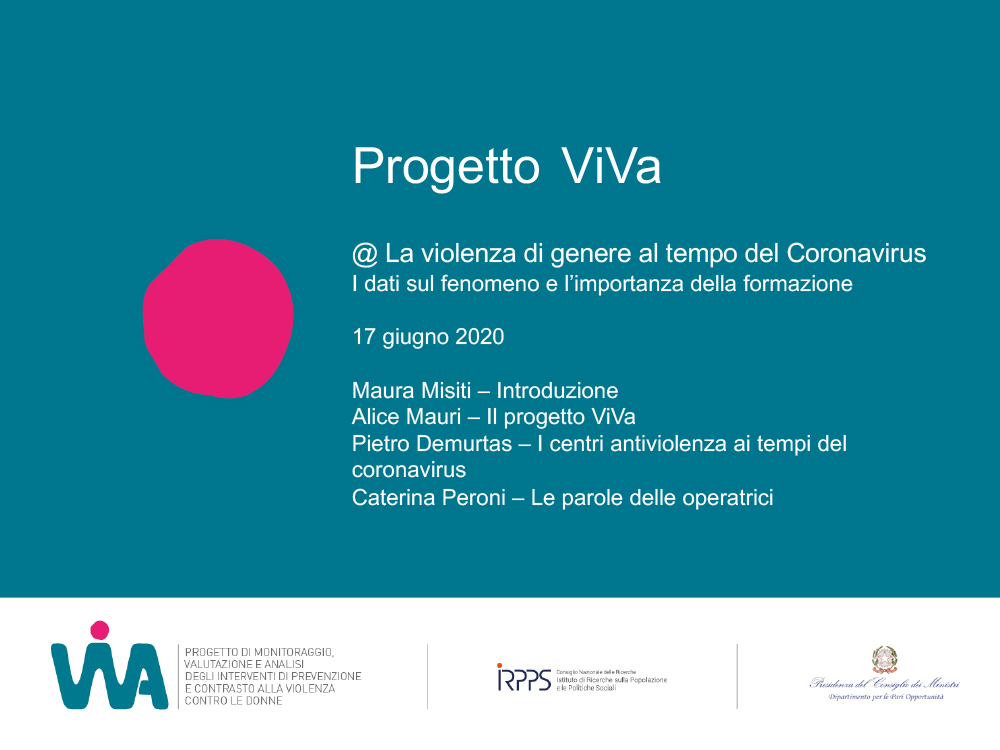
Progetto ViVa @ Università degli studi di Milano Bicocca
Maura Misiti, Alice Mauri, Pietro Demurtas, Caterina Peroni – CNR (Italy)
La violenza di genere al tempo del Coronavirus I dati sul fenomeno e l’importanza della formazione
19/06/2020
Mercoledì 17 giugno 2020 Maura Misiti, Alice Mauri, Pietro Demurtas e Caterina Peroni sono interventi al webinar “La violenza di genere al tempo del Coronavirus. I dati sul fenomeno e l’importanza della formazione” organizzato dall’Università Bicocca per presentare i contenuti del progetto ViVa e i principali esiti quanti-qualitativi dell’instant survey I centri antiviolenza ai tempi del coronavirus.

Impact of COVID-19 on violence against women and girls and service provision: UN Women rapid assessment and findings
UNWomen
27/05/2020
From the analysis of the information received, the pandemic has an immense impact on violence against women and girls (VAWG), including on VAWG risk factors, and especially for women and girls who face multiple forms of discrimination.
IL CONTRIBUTO INTEGRALE È DISPONIBILE QUI
tag: conseguenze, agenzie, inglese

ON THE FRONT LINES OF COVID-19, WOMEN’S ORGANIZATIONS ARE VITAL FIRST RESPONDERS AS VIOLENCE AGAINST WOMEN SPIKES
UNWomen
27/05/2020
The call came in at 10 p.m.—two hours after the COVID-19 curfew in Bosnia and Herzegovina in March. The caller was noticeably shaken, after being thrown across the room and having her hair ripped out by her ex-husband—all in front of her children, aged 10 and 15. The woman and her children fled and stood outside in T-shirts and slippers until a neighbour offered them shelter. She called the police, but they told her that they wouldn’t bring her ex-husband in or issue a restraining order because they were no longer married. Her next call was to the Centre of Women’s Rights.
IL CONTRIBUTO INTEGRALE È DISPONIBILE QUI
tag: attivismo, agenzie, inglese

HOW COVID-19 HAS AMPLIFIED IMPACTS ON WOMEN & GIRLS
UNWomen
26/05/2020
A profound shock to our societies and economies, the COVID-19 pandemic underscores society’s reliance on women both on the front line and at home, while simultaneously exposing structural inequalities across every sphere, from health to the economy, security to social protection. In times of crisis, when resources are strained and institutional capacity is limited, women and girls face disproportionate impacts with far reaching consequences that are only further amplified in contexts of fragility, conflict, and emergencies. Hard-fought gains for women’s rights are also under threat. Responding to the pandemic is not just about rectifying long-standing inequalities, but also about building a resilient world in the interest of everyone with women at the centre of recovery.
IL CONTRIBUTO INTEGRALE È DISPONIBILE QUI
tag: impatto, agenzie, internazionale
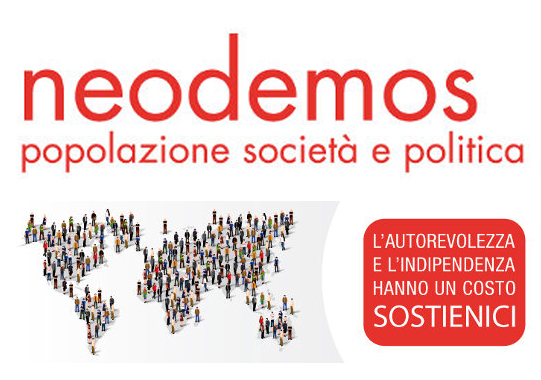
COVID: “EFFETTI COLLATERALI”
Patrizia Farina
26/05/2020
In periodi di crisi come quello che stiamo attraversando le disuguaglianze formali e sostanziali si intensificano e diventano più evidenti. Nel nostro paese come nel resto del mondo, le persone più vulnerabili e fragili, le più emarginate, sono colpite doppiamente perché possono difendersi meno dalla malattia e perché ricevono meno azioni di sostegno essenziali alla loro sopravvivenza
IL CONTRIBUTO INTEGRALE È DISPONIBILE QUI
tag: impatto, analisi, italiano
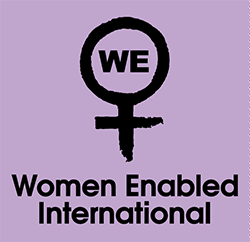
COVID-19 at the intersection of gender & disability – survey
Women Enabled International
26/05/2020
In March 2020, Women Enabled International (WEI) identi ed a gap in initial global responses to COVID-19: many actors were discussing how to include women and persons with disabilities in the response, but few were considering the unique experiences of women with disabilities and others living at the intersection of gender and disability. At the same time, we were hearing from local advocates that they were distressed about the situations in their countries and had concerns about the impact of this crisis on women with disabilities in particular, especially with respect to violence, access to health goods and services, and meeting basic needs. As such, WEI created the WEI COVID-19 Survey (Survey) to better understand these issues and how the lives of women, girls, non-binary, trans, and gender non-conforming persons with disabilities were being impacted by the COVID-19 crisis.
IL CONTRIBUTO INTEGRALE È DISPONIBILE QUI
tag: impatto, analisi, inglese
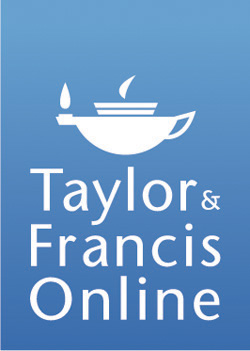
Men & COVID-19: Adding a Gender Lens
Myra Breton, Ann Gottert, Julie Pulerwitz, Dominich Shattuck & Natacha Stevanovic-Fenn
21/05/2020
The proliferation of articles about gender and COVID-19 have focused on the impact on women, such as the enormous burden on women as caregivers and increased rates of domestic violence during home confinement (Gender & Covid-19 Working Group, 2020). These are vital points. However, the global health community must also address men’s risks related to the pandemic, and positively engage men in addressing the challenges women face by addressing gender as a key determinant.
IL CONTRIBUTO INTEGRALE È DISPONIBILE QUI
tag: impatto, analisi, inglese
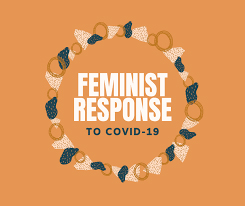
Feminist Response To COVID-19
400 feminist organizations and 700 individuals across the globe
23/05/2020
Cross-cutting to all these principles is the promotion, protection and fulfillment of human rights and gender equality.Human rights and their fundamental principles, including the principles of universality, inalienability, interdependence, indivisiblity, equality, non-discrimination, non-derogation and accountability, must guide all actions taken in response to COVID-19. This includes collective rights, such as the rights of Indigenous Peoples, migrant, displaced and refugee populations as well as labour rights.
IL CONTRIBUTO INTEGRALE È DISPONIBILE QUI
tag: risposte, analisi, inglese

COVID-19: Human development on course to decline this year for the first time since 1990
UNPD
20/05/2020
Global human development – which can be measured as a combination of the world’s education, health and living standards – could decline this year for the first time since the concept was introduced in 1990, the United Nations Development Programme (UNDP) warned today. (…) With school closures, UNDP estimates of the “effective out-of-school rate”—the percentage of primary school-age children, adjusted to reflect those without Internet access—indicate that 60 per cent of children are not getting an education, leading to global levels not seen since the 1980s.
IL CONTRIBUTO INTEGRALE È DISPONIBILE QUI
tag: risposte, attiviste, inglese

Women Make Up the Majority of COVID-19 Job Losses in the U.S
FEMINIST NEWSWIRE
19/05/2020
Though they make up only half the U.S. workforce, women make up 55 percent of those currently unemployed due to COVID-19, effectively erasing the gains made in workplace equality since the recession of 2008.
The current unemployment crisis has been deemed a “she-cession” by C. Nicole Mason, president and chief executive of the Institute for Women’s Policy Research. The rate of women seeking unemployment is at 15.5 percent, the highest rate since the Bureau of Labor Statistics starting reporting employment data by gender in 1948. Meanwhile, the unemployment rate for men is at 13 percent.
IL CONTRIBUTO INTEGRALE È DISPONIBILE QUI
tag: impatto, attiviste, inglese

Three ways to contain COVID-19’s impact on informal women workers
Rachel Moussié e Silke Staab
18/05/2020
Many developing countries have responded to COVID-19 with travel restrictions, lockdowns and curfews to protect the health of citizens and fragile health systems. But with measures to support livelihoods lagging behind, women and the poor are hit hard. During the Ebola crisis, travel restrictions severely impacted the livelihoods of women traders in West Africa, and while men’s economic activity soon returned to pre-crisis levels, the effects on women’s economic security lasted much longer.
IL CONTRIBUTO INTEGRALE È DISPONIBILE QUI
tag: impatto, agenzie, inglese

G7 NATIONS NEED TO GET GENDER EQUALITY RIGHT FOR A BETTER FUTURE FOR WOMEN AT WORK: COVID-19
ILO
14/05/2020
The International Labour Organization, UN Women and the European Union have called on G7 nations to put in place measures to promote gender equality amid the COVID-19 crisis.
At a virtual high-level meeting on COVID-19, bringing together government ministers, CEOs, business associations, trade unions, civil society, global women’s movements and academia from G7 countries, participants agreed that women’s economic empowerment should be part of the crisis response.
IL CONTRIBUTO INTEGRALE È DISPONIBILE QUI
tag: impatto, media, inglese
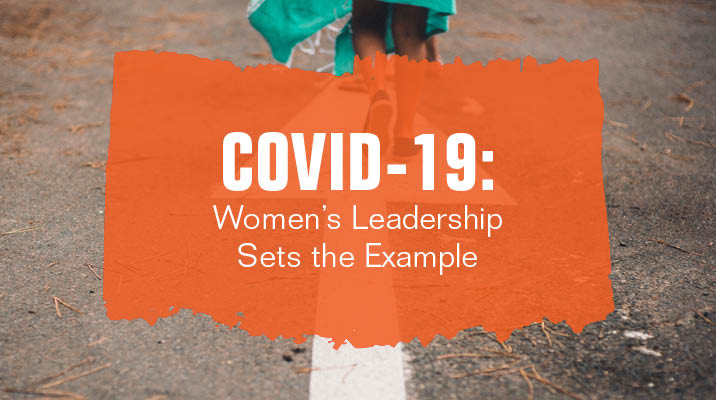
COVID-19: Women’s Leadership Sets the Example
Stephanie Horsford e Molly Jerlström
12/05/2020
The COVID-19 pandemic is repeatedly referred to as a war. But it isn’t a war, it’s a race. A marathon. And so far, the approaches shown by women leaders have been more effective, with their mindful and caring responses to the health crisis positioning them in the front of the pack
IL CONTRIBUTO INTEGRALE È DISPONIBILE QUI
tag: impatto, media, inglese

THE PANDEMIC HAS TRIGGERED DRAMATIC SHIFTS IN THE GLOBAL CRIMINAL UNDERWORLD
Robert Muggah
08/05/2020
Drug cartels are facing broken supply chains, shrinking revenues, and shifting markets. Rising violence is just one effect. To say that COVID-19 changes everything is already a cliché. But it’s also true. The pandemic is deepening tension between China and the United States, accelerating the digitalization of commerce, and shining a bright light on the inequalities that divide our societies. It is also triggering dramatic knock-on effects in the criminal underworld.
IL CONTRIBUTO INTEGRALE È DISPONIBILE QUI
tag: impatto, analisi, inglese

COVID-19 Resources: Gender Data, Gender, and Data
Data2x
15/05/2020
Gender data is necessary for a gender-sensitive response to COVID-19. This is true not only for alleviating the immediate health crisis but also for crafting policy measures to mitigate the long-term impacts of the pandemic on women’s livelihoods and well-being. It is crucial that gender data remain a priority commitment for the global community both before and after the current outbreak.
IL CONTRIBUTO INTEGRALE È DISPONIBILE QUI
tag: ricerca, agenzie, internazionale

Musawah Launches ‘Campaign for Justice in Muslim Family Laws’
Musawah
15/05/2020
Today Musawah launched online its flagship Campaign for Justice in Muslim Family Laws to build momentum and support for the urgent necessity to reform discriminatory Muslim family laws. The global coronavirus pandemic has exposed the ways that discriminatory Muslim family laws exacerbate threats to women’s rights, safety and living conditions, underscoring that equality in the family is inextricable from equality in society.
IL CONTRIBUTO INTEGRALE È DISPONIBILE QUI
tag: conseguenze, agenzie, internazionale
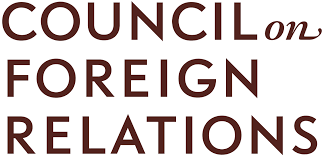
A Double Pandemic: Domestic Violence in the Age of COVID-19
Caroline Bettinger-Lopez e Alexandra Bro
13/05/2020
Governments worldwide have imposed lockdowns to contain the coronavirus, but those same restrictions have increased the risks associated with domestic violence, especially for women, children, and LGBTQ+ individuals.
Around the globe, governments have implored residents to stay home to protect themselves and others from the new coronavirus disease, COVID-19. But for domestic violence victims—the vast majority of whom are women, children, and LGBTQ+ individuals—home is a dangerous place.
IL CONTRIBUTO INTEGRALE È DISPONIBILE QUI
tag: violenza, agenzie, internazionale
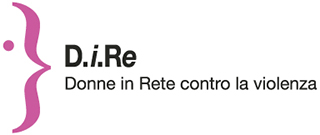
Pubblicati i dati della rilevazione della rete D.i.Re. sui CAV D.i.Re. durante il lockdown.
Rete D.i.Re.
11/05/2020
Cresce tra il 6 aprile e il 3 maggio 2020 il numero delle donne che per la prima volta si sono rivolte a un centro antiviolenza della rete D.i.Re per chiedere sostegno.
IL CONTRIBUTO INTEGRALE È DISPONIBILE QUI
tag: violenza, CAV, italiano

WE NEED A FEMINIST RESPONSE TO THIS CORONAVIRUS PANDEMIC!
Lina Abirafeh
11/05/2020
As governments around the world begin to implement COVID-19 lockdown exit plans, the world is slowly growing accustomed to our new reality under the pandemic. Everyone is at risk, but those who are marginalized — women and girls, the elderly, people with disabilities, people without insurance, people with compromised immune systems, and refugee populations — face even greater challenges.
IL CONTRIBUTO INTEGRALE È DISPONIBILE QUI
tag: violenza, agenzie, inglese
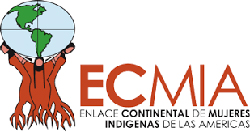
Indigenous Women of the Americas in the Face of the COVID-19 Pandemic
Ecmia
11/05/2020
The Continental Network of Indigenous Women of the Americas (ECMIA) is a structure comprising more than thirty women or mixed-gender indigenous organizations spread over twenty-three countries. It seeks to promote leadership training and political advocacy in international spaces
and processes in order to foster the exercise of the region’s indigenous women’s rights.
IL CONTRIBUTO INTEGRALE È DISPONIBILE QUI
tag: violenza, associazioni, inglese


The additional risks of COVID-19 for migrant women, and how to address them
Iom
10/5/2020
The impacts and implications of the COVID-19 coronavirus are different for men and women and may create greater inequalities for people who are in vulnerable positions, such as migrants, according to UN Women.
Organizations around the world are aware of this inequality and have warned about the urgent need to look at existing realities from gender and intersectional perspectives that allow for the identification of these inequalities and, at the same time, incorporate greater protection and assistance to more vulnerable populations in response plans.
IL CONTRIBUTO INTEGRALE È DISPONIBILE QUI
tag: conseguenze, agenzie, internazionale

Pregnancy in the time of coronavirus
Tara Nykyforiak
8/5/2020
Pregnant women struggle so much already with isolation and loss of control over their birth plans — coronavirus has brought even more challenges.
IL CONTRIBUTO INTEGRALE È DISPONIBILE QUI
tag: conseguenze, media, internazionale

Here’s how to achieve gender equality after the pandemic
Katica Roy
25/04/2020
Our response to COVID-19 is fundamentally a question of who we are. When we say that ensuring the wellbeing of half the world’s population matters, do we believe it? Or do we say it to be diplomatic?
IL CONTRIBUTO INTEGRALE È DISPONIBILE QUI
tag: conseguenze, agenzie, internazionale

A second Covid crisis: The impact on women and girls
Elizabeth Ralph
24/04/2020
The data tell us that men are more likely to die from coronavirus. The data also tell us that, around the world, women are suffering more from the pandemic’s social and economic fallout.
The idea that all but one UN agency has failed to recognize the double, triple, quadruple inequalities that women and girls face in emergency situations told me that for all the rhetoric we have seen over the last five, 10, 15 years, we are miles away from getting the kind of implementation and prioritization that … women’s protection and empowerment deserve. “ David Miliband, CEO International Rescue Committee
IL CONTRIBUTO INTEGRALE È DISPONIBILE QUI
tag: conseguenze, stampa, internazionale

Violenza di genere durante la pandemia da Covid-19
Marina Penasso, DoRs
22/04/2020
E’ disponibile on line la ricerca bibliografica a cura di Marina Penasso – DoRs (Centro Regionale di documentazione per la promozione della salute) dedicata alla Violenza di genere durante la pandemia da Covid-19, aggiornata al 20 aprile 2020.
IL CONTRIBUTO INTEGRALE È DISPONIBILE QUI
tag: impatto, bambini/e, agenzie, inglese
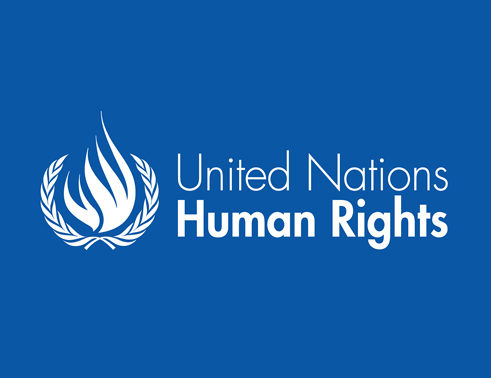
UN Committee on the Rights of the Child Warns of the Grave Physical, Emotional and Psychological Effects of the COVID-19 Pandemic on Children
UN Committee on the Rights of the Child
8/04/2020
The Committee on t he Rights of the Child expresses concern about the situation of children globally, particularly those in situations of vulnerability, due to the effects of the COVID-19 pandemic. Many children are gravely affected physically, emotionally and psychologically, especially in countries that have declared states of emergencies and mandatory lockdowns.
IL CONTRIBUTO INTEGRALE È DISPONIBILE QUI
tag: impatto, bambini/e, agenzie, inglese
L’occupazione femminile dopo il Covid19
Openpolis
29/04/2020
La gestione dell’emergenza Coronavirus ha fatto riemergere uno dei mali cronici del nostro paese: la mancanza di parità di genere.
In queste settimane infatti, nei ruoli della catena di comando, sia su scala locale che nazionale, le donne sono solo il 20%. Più ci si avvicina agli incarichi di maggior rilievo, più la parità di genere sembra un’utopia. Negli incarichi chiave di protezione civile, ministero della salute e delle strutture create ad hoc nell’emergenza non ci sono donne.
IL CONTRIBUTO INTEGRALE È DISPONIBILE QUI
tag:
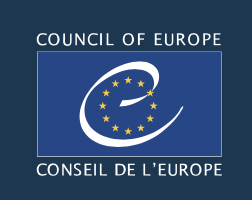
Promoting and protecting women’s rights at national level
CoE
24/04/2020
The Council of Europe has launched a dedicated resource page on information on national measures taken to prevent and combat domestic, sexual and gender-based violence, and to mitigate the impact of the COVID 19 pandemic on equality between women and men. This information was compiled following a joint call for information to the Committee of the Parties to the Istanbul Convention and the Council of Europe Gender Equality Commission.
The webpage serves as a platform for inspiration, synergies and exchange of practices, as much as a resource tool for anyone in need of information about what states, but also international organisations, including other bodies of the Council of Europe, as well as civil society are doing to put the protection of women’s rights at the heart of the fight against the pandemic.
IL CONTRIBUTO INTEGRALE È DISPONIBILE QUI
tag: dati violenza, agenzie internazionali, internazionale

Famiglie costrette a scegliere
Micaela Vitaletti
30/04/2020
Con la sospensione dei servizi all’infanzia, molte famiglie si troveranno costrette a scegliere tra il lavoro e la cura dei figli. E a pagare il conto saranno le donne, ma anche l’avvenire economico
IL CONTRIBUTO INTEGRALE È DISPONIBILE QUI
tag:
GESTIONE COVID19, POCHE DONNE E NON NEI RUOLI CHIAVE
Openpolis
29/04/2020
La gestione dell’emergenza Coronavirus ha fatto riemergere uno dei mali cronici del nostro paese: la mancanza di parità di genere.
In queste settimane infatti, nei ruoli della catena di comando, sia su scala locale che nazionale, le donne sono solo il 20%. Più ci si avvicina agli incarichi di maggior rilievo, più la parità di genere sembra un’utopia. Negli incarichi chiave di protezione civile, ministero della salute e delle strutture create ad hoc nell’emergenza non ci sono donne.
IL CONTRIBUTO INTEGRALE È DISPONIBILE QUI
tag:

L’occupazione femminile dopo il Covid19
Eleonora Maglia
29/04/2020
L’Italia è penultima in Europa per tasso di occupazione femminile, cosa ne sarà del lavoro delle donne dopo l’emergenza? Un commento a partire dagli ultimi dati
IL CONTRIBUTO INTEGRALE È DISPONIBILE QUI
tag:

Half of the Students Out of School Due to COVID-19 Can’t Access Online Learning
Leah Rodriguez
22/04/2020
At least 1.5 billion students and 63 million primary and secondary teachers are affected by school closures in the wake of the pandemic in 191 countries. The data revealed that half of all students, nearly 830 million children, who are not currently attending school due to stay-at-home orders, do not have access to a computer. More than 40% do not have internet access at home.
IL CONTRIBUTO INTEGRALE È DISPONIBILE QUI
tag: conseguenze, stampa, internazionale
Staying at home is dangerous for many women
Sally Armstrong
22/04/2020
Stay at home to be safe. For women trapped in abusive relationships this mandated measure to get out of harm’s way is condemning them to terrifying danger.
One in 10 women is very or extremely concerned about the possibility of violence in the home, suggests a Statistics Canada survey about COVID-19.
IL CONTRIBUTO INTEGRALE È DISPONIBILE QUI
tag: violenza, stampa, internazionale

COVID-19 Requires An Intersectional Approach
El Karama
21/04/2020
A gender sensitive response to COVID19 crisis requires an intersectional response. This was the message of the Karama women’s network as part of the UN Women and OECD Women Leaders Virtual Roundtable on COVID-19 & the Future.
IL CONTRIBUTO INTEGRALE È DISPONIBILE QUI
tag: conseguenze, agenzie internazionali, internazionale
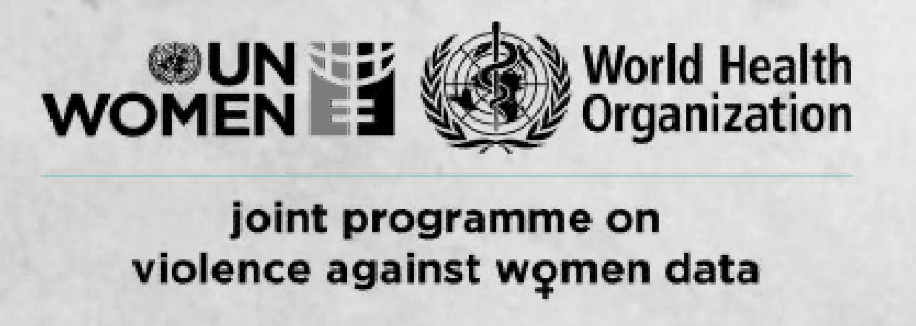
Violence Against Women and Girls Data Collection during COVID-19
UNWOMEN and WHO
17/04/2020
This is a living document that summarizes principles and recommendations to those planning to embark on data collection on the impact of COVID-19 on violence against women and girls (VAWG). It was informed by the needs and challenges identified by colleagues in regional and country offices and has benefited from their input. It re- sponds to the difficulties of adhering to methodological, ethical and safety principles in the context of the physi- cal distancing and staying at home measures imposed in many countries.
IL CONTRIBUTO INTEGRALE È DISPONIBILE QUI
tag: dati violenza, agenzie internazionali, internazionale

For Women, Lockdown Can Be More Dangerous Than the Coronavirus
Shalva Weil
19/04/2020
For hundreds of thousands if not millions of women, coronavirus means ‘sheltering’ with their abusers – or killers. No wonder reports of domestic violence and femicide are surging worldwide.
IL CONTRIBUTO INTEGRALE È DISPONIBILE QUI
tag: violenza, media, internazionale

The pandemic and the female academic
Alessandra Minello
17/04/2020
Humour is one way for women in academia to face the pandemic’s consequences for their work and family lives. Last month, a viral Twitter post read, “The next person who tweets about how productive Isaac Newton was while working from home gets my three year old posted to them!”. Since COVID-19 closed my university on 12 March, I’ve seen more sunrises than in the rest of my previous life. Now, I must be at work before daybreak.
IL CONTRIBUTO INTEGRALE È DISPONIBILE QUI
tag: conseguenze genderizzate, media, internazionale

I segni della crisi sui corpi delle donne
Caterina Muratori, Maria Laura Di Tommaso
15/04/2020
Dall’obiezione di coscienza alla violenza domestica, come e perché le crisi hanno effetti negativi sulle donne e questa non farà eccezione
IL CONTRIBUTO INTEGRALE È DISPONIBILE QUI
tag: conseguenze genderizzate, ricerca, italiano

L’università senza corpi. Diseguaglianze e dematerializzazione della didattica
Renata Pepicelli
14/04/2020
Mentre in queste settimane è in corso un articolato dibattito sulla scuola online, meno si discute invece di università online. Eppure anche per chi insegna, lavora e studia all’università si sono palesati gli effetti dell’irruzione inaspettata del Covid-19, che ha portato a dover ripensare le forme del nostro vivere comune.
IL CONTRIBUTO INTEGRALE È DISPONIBILE QUI
tag: diseguaglianze, media, italiano

Chayn Italia intervista i Centri Antiviolenza
Chayn Italia
13/04/2020
Le ultime settimane della crisi globale provocata dalla diffusione del virus COVID-19 hanno messo in netta evidenza l’effetto dello stato di emergenza sulle libertà individuali e gli effetti particolarmente devastanti sulle donne. Chayn Italia promuove la campagna #inretenonseisola, per raccogliere informazioni e materiali utili e materiali, e una serie di interviste a operatrici di CAV per valutare la trasformazione che sta subendo il lavoro dei CAV ed identificare eventuali criticità.
IL CONTRIBUTO INTEGRALE È DISPONIBILE QUI
tag: violenza; indagine; attiviste, italiano
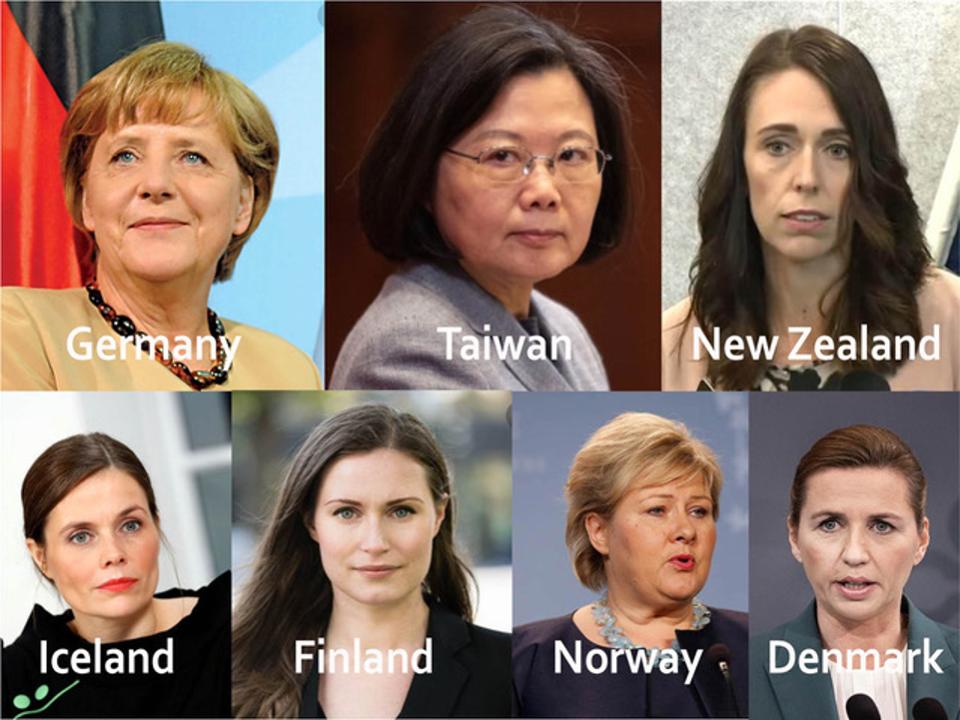
What Do Countries With The Best Coronavirus Responses Have In Common? Women Leaders!
Avivah Wittenberg-Cox
13/04/2020
Looking for examples of true leadership in a crisis? From Iceland to Taiwan and from Germany to New Zealand, women are stepping up to show the world how to manage a messy patch for our human family. Add in Finland, Iceland and Denmark, and this pandemic is revealing that women have what it takes when the heat rises in our Houses of State. Many will say these are small countries, or islands, or other exceptions. But Germany is large and leading, and the UK is an island with very different outcomes. These leaders are gifting us an attractive alternative way of wielding power. What are they teaching us?
IL CONTRIBUTO INTEGRALE È DISPONIBILE QUI
tag: tag: commenti; media; internazionale
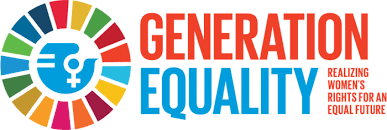
THE IMPACT OF COVID-19 ON WOMEN – UN SECRETARY-GENERAL POLICY BRIEF
UN Women
09/04/2020
The year 2020, marking the twenty-fifth anniversary of the Beijing Platform for Action, was intended to be ground-breaking for gender equality. Instead, with the spread of the COVID-19 pandemic, even the limited gains made in the past decades are at risk of being rolled back. The pandemic is deepening pre-existing inequalities, exposing vulnerabilities in social, political and economic systems which are in turn amplifying the impacts of the pandemic. Across every sphere, from health to the economy, security to social protection, the impacts of COVID-19 are exacerbated for women and girls simply by virtue of their sex. This policy brief explores how women and girls’ lives are changing in the face of COVID-19, and outlines suggested priority measures to accompany both the immediate response and longer-term recovery effort.
IL CONTRIBUTO INTEGRALE È DISPONIBILE QUI
tag: conseguenze genderizzate; agenzie internazionali; internazionale

Women Informal Workers on the Frontlines of COVID-19:
Providing Critical Services Without Adequate Protections & Pay
Jenna Harvey e the Focal Cities Team
07/04/2020
As cities across the world shut down to stop the spread of COVID-19, governments are depending on a set of essential workers to continue to go out and work: to keep the public fed and informed, to care for the sick and vulnerable, and to maintain a clean and safe urban environment, among other critical services.In the global South, many of these workers – such as street and market vendors, newspaper sellers, waste pickers and domestic workers – work in the informal economy
IL CONTRIBUTO INTEGRALE È DISPONIBILE QUI
tag: conseguenze genderizzate; lavoro; attiviste, italiano

A New Covid-19 Crisis: Domestic Abuse Rises Worldwide
The New York Times
06/04/2020
Movement restrictions aimed to stop the spread of the coronavirus may be making violence in homes more frequent, more severe and more dangerous. Mounting data suggests that domestic abuse is acting like an opportunistic infection, flourishing in the conditions created by the pandemic.
IL CONTRIBUTO INTEGRALE È DISPONIBILE QUI
tag: violenza; media; internazionale

Increased Risk of Trafficking During COVID-19
OscE
03/04/2020
Although the COVID-19 threat is universal, the negative consequences of this crisis will be disproportionally carried by the most vulnerable in our societies. Firstly, victims of trafficking face exceptional danger as entrenched systems of exploitation are thrown into disarray and traffickers seek to maintain their revenue through greater violence or new forms of exploitation.
IL CONTRIBUTO INTEGRALE È DISPONIBILE QUI
tag: violenza; soggetti vulnerabilizzati; agenzie internazionali, internazionale
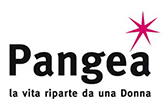
##Pangea: no a fare del Coronavirus il “nuovo raptus di gelosia”
PANGEA ONLUS
03/04/2020
Simona Lanzoni, vice presidente Fondazione Pangea Onlus e coordinatrice della Rete Reama, afferma che le Regioni devono usare ‘rapidamente’ i margini finanziari che hanno avuto per sostenere i centri antiviolenza e le case rifugio così da fronteggiare le conseguenze dell’emergenza Coronavirus, che ha avuto risvolti drammatici sul già enorme problema della violenza sulle donne. Lanzoni sottolinea anche come sia ‘urgente’ che la commissione Bilancio del Senato approvi il pacchetto di emendamenti al decreto Cura Italia firmato da tutte le componenti della commissione femminicidio, presieduta dalla senatrice Valeria Valente.
.
IL CONTRIBUTO INTEGRALE È DISPONIBILE QUI
tag: violenza; attiviste; nazionale
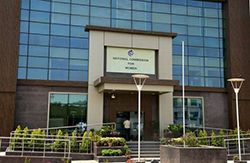
India – Covid-19 lockdown. Rise in domestic violence, police apathy.
Jagriti Chandra
02/04/2020
The first week of the nationwide lockdown, which has left many facing job losses, uncertainty over salaries, forced isolation and stressed households, has resulted in a steep rise in violence against women. The National Commission for Women (NCW), which receives complaints from across the country, has recorded a more than twofold rise in gender-based violence
IL CONTRIBUTO INTEGRALE È DISPONIBILE QUI
tag: violenza; media; nazionale
Protection from domestic violence urgently needed for women and children under stay-at-home orders,
OSCE
02/04/2020
Noting a troubling rise in domestic violence in relation to the COVID-19 pandemic lockdowns and self-isolation guidelines in many countries, OSCE leaders called today for measures to be taken by governments to protect women and children. They said that unfortunately, for them home is not always a safe haven, as they are the most susceptible to abuse and need increased protection in these extraordinary times and urged to ensure that they are kept safe from abusers.
IL CONTRIBUTO INTEGRALE È DISPONIBILE QUI
tag: violenza; agenzie internazionali; internazionale

Covid-19: Protecting Adolescent Girls and Young Women
Womenwin
04/2020
We are only beginning to understand the economic and social impacts that Covid-19 will have on communities around the world. However, substantial evidence shows that outbreaks and crises compound existing inequalities and disproportionately affect women and girls.
IL CONTRIBUTO INTEGRALE È DISPONIBILE QUI
tag: violenza; agenzie internazionali; internazionale

Violence Against Women & Girls & COVID-19 Are BOTH Pandemics
Elahe Amani – MBBI
04/2020
Imagine there was a pandemic that globally impacted close to 1.3 billion women and girls at some point in their lives. Imagine that the economic cost of this pandemic was 25 times more than war and terrorism, and accounted for 4.4 trillion dollars (5.2 of global GDP). Imagine the lack of prevention strategies, and treatment of this pandemic causing the death of more than 50,000 women, 137 women across the world every day. Contrary to the Pandemic of COVID-19, a recent outbreak, this gender-based pandemic is deep-rooted. The name of this pandemic is family violence.
IL CONTRIBUTO INTEGRALE È DISPONIBILE QUI
tag: violenza; agenzie internazionali; internazionale

Covid – Uno sguardo di genere
ORLANDO
marzo/2020
Come state? come stanno le persone che una casa non l’hanno? e chi vive in un contesto di violenza domestica? Quanto (ci) costa, economicamente e socialmente, questa emergenza e quanto ricade sulle donne e sugli uomini il lavoro di cura?
IL QUESTIONARIO È DISPONIBILE PER LA COMPILAZIONE QUI
tag: conseguenze genderizzate; indagine; cav; italiano
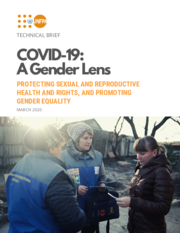
Protecting sexual and reproductive health and rights, and promoting gender equality
UNFPA
marzo/2020
Disease outbreaks affect women and men differently, and pandemics make existing inequalities for women and girls and discrimination of other marginalized groups such as persons with disabilities and those in extreme poverty, worse. This needs to be considered, given the different impacts surrounding detection and access to treatment for women and men.
Women represent 70 percent of the health and social sector workforce globally and special attention should be given to how their work environment may expose them to discrimination, as well as thinking about their sexual and reproductive health and psychosocial needs as frontline health workers.
IL CONTRIBUTO È DISPONIBILE QUI
tag: conseguenze genderizzate; agenzie internazionali; internazionale

VERSO UNA DEMOCRAZIA DELLA CURA
Ingenere
02/04/2020
Il decreto Cura Italia non include le lavoratrici e i lavoratori del settore domestico e di assistenza. Invece è da questo settore che dovremmo ripartire per pensare a una nuova forma di democrazia. L’appello di un gruppo di ricercatrici.
IL CONTRIBUTO È DISPONIBILE QUI
tag: conseguenze genderizzate; lavoro; attiviste; ricerca; iinternazionale

Coronavirus fuels domestic violence in the Middle East
Maram Shahatit
02/04/2020
As authorities across the region struggle to contain the pandemic through curfews and lockdowns, few have thought of the knock-on effects. For many women, more time at home means more physical abuse from family members.
IL CONTRIBUTO È DISPONIBILE QUI
tag: violenza, media, internazionale
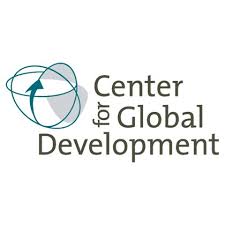
Pandemics and Violence Against Women and Children
Amber Peterman, Alina Potts, Megan O’Donnell, Kelly Thompson, Niyati Shah, Sabine Oertelt-Prigione, and Nicole van Gelder
04/2020
Times of economic uncertainty, civil unrest, and disaster are linked to a myriad of risk factors for increased violence against women and children (VAW/C). Pandemics are no exception. In fact, the regional or global nature and associated fear and uncertainty associated with pandemics provide an enabling environment that may exacerbate or spark diverse forms of violence. Understanding mechanisms underlying these dynamics are important for crafting policy and program responses to mitigate adverse e ects.
IL CONTRIBUTO È DISPONIBILE QUI
tag: violenza, ricerca, internazionale
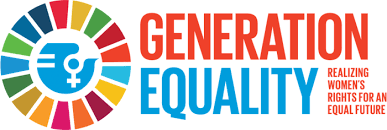
Violence against women and girls: the shadow pandemic
Un Women
04/2020
With 90 countries in lockdown, four billion people are now sheltering at home from the global contagion of COVID-19. It’s a protective measure, but it brings another deadly danger. We see a shadow pandemic growing, of violence against women.
IL CONTRIBUTO È DISPONIBILE QUI
L’INFOGRAFICA È DISPONIBILE QUI
tag: violenza, ong, internazionale
Guidelines for protecting the rights of women & girls during the COVID-19 pandemic
Women’s link worldwide, Amnesty International, IPPF
04/2020
Any measures taken to respond to the COVID-19 pandemic must uphold and ensure human rights. States must ensure that their response is gender-sensitive and includes a differential approach that guarantees the rights of women and girls to live free of discrimination and violence, and to access the essential sexual and reproductive health services that they need as women.
IL CONTRIBUTO È DISPONIBILE QUI
tag: violenza, ong, internazionale

GLOBAL FEMINIST PERSPECTIVE ON THE PANDEMIC: WHAT “NORMAL” DO WE EXPECT WHEN THE CRISIS IS OVER ?
Migrant women network
31/03/2020
In the midst of the Covid-19 pandemic and the measures taken by states to prevent its spread, European Network of Migrant Women wishes to offer our analysis of some of the aspects of this crisis, from a global feminist perspective.
IL CONTRIBUTO È DISPONIBILE QUI
tag: conseguenze genderizzate; attiviste; internazionale
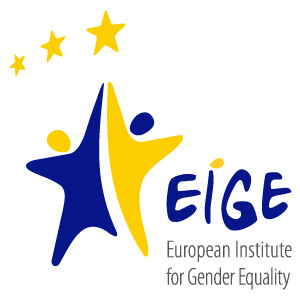
CONSIDER FOR WOMEN & GIRLS IN PRISON, IN THE CRIMINAL JUSTICE SYSTEM
OHCHR and WHO
03/2020
COVID-19 has been declared a global pandemic and as it is spreading, identified vulnerabilities such as the situation of persons deprived of their liberty in prisons, administrative detention centres, immigration detention centres and drug rehabilitation centres, require a specific focus.
IL CONTRIBUTO È DISPONIBILE QUI
tag: conseguenze genderizzate, agenzie internazionali, internazionale

Che ne sarà di colf, assistenti domiciliari e baby sitter
Andrea Zini
31/03/2020
Con l’epidemia da coronavirus le famiglie italiane hanno smesso di pagare assistenti domiciliari, colf e baby sitter. Andrea Zini, vicepresidente di Assindatcolf, propone una sanatoria nazionale e misure strutturali di welfare
IL CONTRIBUTO È DISPONIBILE QUI
tag: lavoro; attiviste; italiano

Perché la pandemia non ci rende tutti uguali
Ingenere
26/03/2020
Con l’epidemia da coronavirus le famiglie italiane hanno smesso di pagare assistenti domiciliari, colf e baby sitter. Andrea Zini, vicepresidente di Assindatcolf, propone una sanatoria nazionale e misure strutturali di welfare
IL CONTRIBUTO È DISPONIBILE QUI
tag: lavoro, ricerca, nazionale
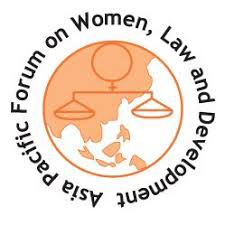
COVID-19 Highlights the Failure of Neoliberal Capitalism: We Need Feminist Global Solidarity
APWLD
25/03/2020
The effect of this public health crisis leading to — and was brought by — the interconnected economic, social and political crisis is becoming clearly evident, and the most marginalised communities are hit the hardest. We have observed the significant lack of access to accurate information, governments’ failure to deliver on their state obligation, including in ensuring transparency or meeting peoples’ basic needs, increased digital surveillance, curfews and lockdown with sweeping measures by military and police forces.
IL CONTRIBUTO È DISPONIBILE QUI
tag: femminismo; attiviste; internazionale

Pandemics Are Not Gender-Neutral, Gender Analysis Can Improve Response To Disease Outbreaks
Lenka Filipová, Renata H. Dalaqua, James Revill
24/03/2020
In COVID-19, the world faces its biggest global crisis for decades. Gender may not be at the forefront of people’s minds, but it should not be ignored. Pandemics are not gender-neutral and gender-informed responses can improve how infectious disease outbreaks are tackled
IL CONTRIBUTO È DISPONIBILE QUI
tag: conseguenze genderizzate; agenzie internazionali; internazionale
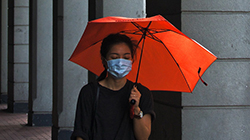
As pandemic rages, women and girls face intensified risks
UNFPA
19/03/2020
COVID-19, the coronavirus disease that has rapidly spread around the world since it was discovered late last year, appears most deadly among elderly populations and people with pre-existing medical conditions. Accurate and complete sex-disaggregated data are still needed to understand whether and how women and men experience infection, complication and death risks differently.
IL CONTRIBUTO È DISPONIBILE QUI
tag: violenza; internazionale; agenzie internazionali; internazionale
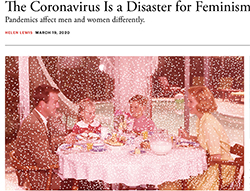
The Coronavirus Is a Disaster for Feminism
The Atlantic
19/03/2020
Pandemics affect men and women differently. The coronavirus crisis will be global and long-lasting, economic as well as medical. However, it also offers an opportunity. This could be the first outbreak where gender and sex differences are recorded, and taken into account by researchers and policy makers.
IL CONTRIBUTO È DISPONIBILE QUI
tag: violenza; media; internazionale
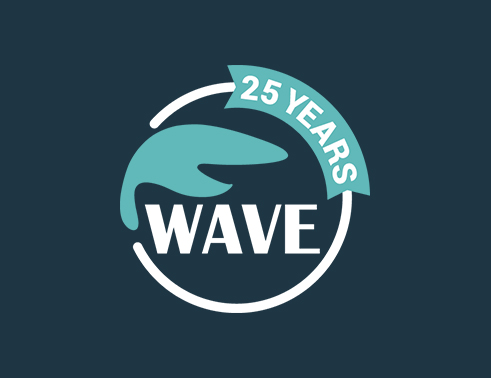
Covid-19 Resources for Women’s Specialist Support Services & Women’s Organizations
WAVE
18/03/2020
In light of the current Covid-19 pandemic, women’s specialist services find themselves in completely new territory. WAVE supports all women’s specialist support services.
IL CONTRIBUTO È DISPONIBILE QUI
tag: antiviolenza; rete; cav; internazionale
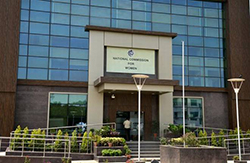
Preventing & Managing the Spread of COVID-19 Within Domestic Violence Programs
WURN
13/03/2020
As the coronavirus outbreak reaches pandemic proportions, domestic violence organizations providing training and technical assistance on the national and state levels are seeing an increase in requests from community-based shelters across the country for accurate information and guidance on how to plan, prepare, and respond to this emerging public health threat.
IL CONTRIBUTO È DISPONIBILE QUI
tag: violenza; agenzie internazionali; internazionale
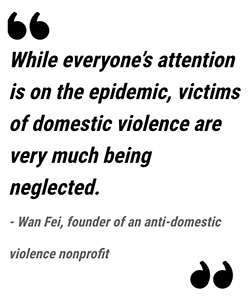
China – Domestic violence escalates during the covid-19 epidemic
Zhang Wanqing
02/03/2020
On February 11, Xiao Li received a distressing call from a 12-year-old crying for help. The child was wandering the deserted streets of their hometown in the central Henan province with his mother and 7-year-old sister. Their father had physically abused their mother and then kicked them out of the house at a time when many cities, including theirs, were on lockdown to contain the spread of COVID-19.
IL CONTRIBUTO È DISPONIBILE QUI
tag: violenza; media; internazionale

COVID-19: the gendered impacts of the outbreak
The Lancet
06/03/2020
Policies and public health efforts have not addressed the gendered impacts of disease outbreaks. The response to coronavirus disease 2019 (COVID-19) appears no different. We are not aware of any gender analysis of the outbreak by global health institutions or governments in affected countries or in preparedness phases. Recognising the extent to which disease outbreaks affect women and men differently is a fundamental step to understanding the primary and secondary effects of a health emergency on different individuals and communities, and for creating effective, equitable policies and interventions.
IL CONTRIBUTO È DISPONIBILE QUI
tag: conseguenze genderizzate; media; internazionale
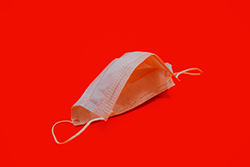
Il coronavirus e la narrazione tossica della disabilità
Chiara Bersani
02/03/2020
Tutto l’abilismo di un’emergenza: ecco come i corpi disabili vengano raccontati durante i giorni del Covid-19.
IL CONTRIBUTO È DISPONIBILE QUI
